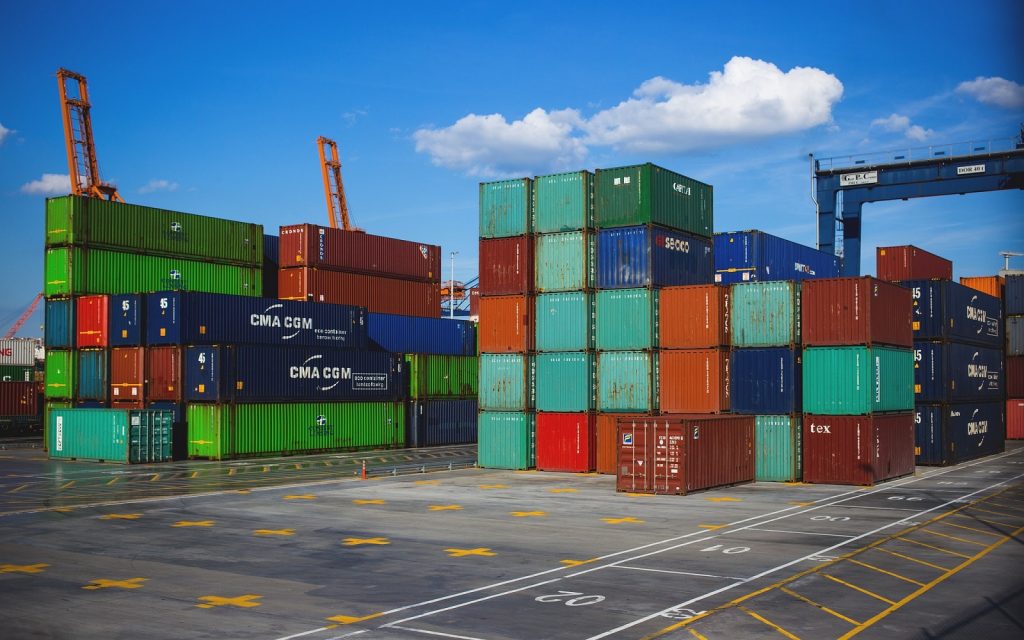In a surprising move to address the long-standing issues plaguing South Africa’s state-run ports and freight-rail sector, the Presidency is considering something unexpected: asking the private sector to step in and fix them.
This strategic shift is outlined in a draft Roadmap that was leaked recently. The 124-page report, “Roadmap for the Freight Logistics System in South Africa,” was seen by Bloomberg and presents timelines and initiatives to revitalise the sector, including establishing an independent port and rail regulator and providing access to rail lines and operating rights for private companies.
As it’s a draft, the Roadmap has only been shared with business and labour leaders and has not yet been released publicly. However, its contents remain interesting.
Private sector-led rejuvenation
The proposed changes are surprisingly far-reaching, even suggesting that lucrative coal and iron-ore rail export lines — currently underperforming and hampering exports by major companies like Anglo American Plc and Glencore Plc — might also be managed by private entities.
This concept, which has long been opposed by Transnet, underscores a fundamental shift in South Africa’s approach to economic growth: instead of relying solely on state-run entities, the country is increasingly looking to the private sector to rejuvenate key services, such as power and water provision.
The urgency of addressing South Africa’s logistics issues can’t be overstated. Important railway routes, including those for coal and iron ore, are operating at their lowest capacity levels in years. General freight volumes are also down, while South Africa’s container ports have become “the least efficient in Africa”, according to the report.
The authors of the report point out that “…the inability to export goods via rail is the most severe constraint on economic growth after the electricity supply shortfall and requires urgent intervention.” The report goes on to highlight the economic damage done by the decline by pointing out that since 2010, South Africa has lost an estimated $26.7 billion – more than R500bn in today’s money – in iron ore and coal export trade.
Declines across the board
Over the past five years, South Africa’s embattled state-run freight rail system has transported far less freight than in years before. Since the country still needs goods transported around the country, this has pushed more and more big trucks onto our roads, causing congestion and further damaging already-stressed road infrastructure. A decline in port performance has also been evident, with container shipments being redirected to ports in Angola and Mozambique.
Blame for the situation has been placed on factors like a lack of locomotives and cable theft (and not, as we all suspect, gross government mismanagement). The situation prompted lobby groups representing miners and various Durban-based businesses to call for a change in Transnet’s management. While correlation does not mean causation, in recent weeks, both the company’s CEO and head of its freight rail division have resigned.
The comprehensive plan, overseen by the President’s office, is set to be implemented by the Department of Public Enterprises, the Department of Transport, and the National Treasury. It also envisions the establishment of a rail infrastructure manager and a rolling stock leasing company, potentially in collaboration with private companies.
While this plan represents a significant overhaul of South Africa’s freight industry, it is worth noting that similar proposals aimed at addressing other critical issues in the country, such as much-needed changes to the work-permit regime and power shortages, have not made much progress.
The Presidency responds
In response to what the Presidency calls “misleading reports” that appeared in the media after articles based on the leaked draft first surfaced, the Office of the Presidency released a statement on Friday the 13th of October. The statement emphasised that the misleading reports had created the impression that “…The Presidency seeks to place Transnet under private control”, which it went on to say was not the case: under the new Roadmap, Transnet will most assuredly remain a State Owned Entity.
Instead, Transnet is expected to transform into a holding company with various subsidiaries as part of this plan. Stakes in these subsidiaries may be offered to private companies, with the state maintaining majority control over its infrastructure businesses.
The Presidency’s statement added that government has established the National Logistics Crisis Committee to address issues with the country’s logistics systems, and that working with the private sector is just one of many approaches being considered. The statement ended with “In this regard, private sector participation does not equate to privatisation of public assets, nor does it diminish the role of the state in ensuring a reliable, efficient, and world-class logistics system.”
Time will tell
Only time will tell if the proposed Roadmap goes ahead, and furthermore, whether it will have the desired effects or be just another well-intentioned but ultimately ineffective solution to our country’s many problems.
We can but hold our collective breaths.




